Search Results
Showing results 1 to 18 of 18
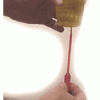
Single Serving Volcanism
Source Institutions
In this activity, learners eat a snack and make a model of the plumbing system of a volcano.

Living Bones, Strong Bones
Source Institutions
In this activity about engineering, nutrition, and physical activity, learners design and build a healthy bone model of a space explorer which is strong enough to withstand increasing amounts of weigh
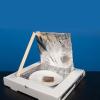
Cook Food Using the Sun
Source Institutions
Learners build a solar oven from a cardboard pizza box, aluminum foil and plastic. Learners can use their oven to cook S'mores or other food in the sun.
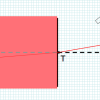
Super Gelatin
Source Institutions
Can gelatin (like Jell-O ®) change the speed of light?

Future Moon: The Footsteps of Explorers
Source Institutions
In this activity, learners drop impactors onto layers of graham crackers!

Cooking With the Sun
Source Institutions
In this activity, learners build a simple solar oven out of household materials to melt chocolate and marshmallow between graham crackers--known as s'mores.
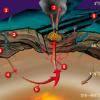
Candy Chemosynthesis
Source Institutions
In this activity, groups of learners work together to create edible models of chemicals involved in autotrophic nutrition.

Sustainable Fishing
Source Institutions
In this activity, learners use a model for how fishing affects marine life populations, and will construct explanations for one of the reasons why fish populations are declining.

We all Scream for Ice Cream
Source Institutions
In this activity, learners observe how salinity affects the freezing point of water by making and enjoying ice cream.
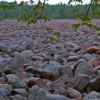
How Boulders Are Born
Source Institutions
In this activity, learners review and discuss weathering, erosion and mass wasting, to gain a stronger understanding of how Hickory Run’s Boulder Field was formed after the Laurentide Continental Glac
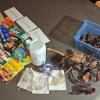
Got Seaweed?
Source Institutions
In this activity, learners examine the properties of different seaweeds, investigate what happens when powdered seaweed (alginate) is added to water, and learn about food products made with seaweed.
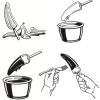
T. rex Cretaceous Treat
Source Institutions
In this activity, learners make edible T. rex teeth (with adult assistance). The treat is a white and dark chocolate covered banana on a stick.
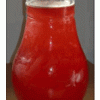
What's So Special about Water: Solubility and Density
Source Institutions
In this activity about water solubility and density, learners use critical thinking skills to determine why water can dissolve some things and not others.

Chocolate Lava
Source Institutions
In this yummy earth science activity (page 5 of the PDF), learners use fudge to learn about different kinds of lava.

Cook with a Solar Oven
Source Institutions
In this activity, learners make their own solar oven to bake s'mores and learn about how solar energy is absorbed on Earth.

Chocolate Chip Cookie Constellations
Source Institutions
This chocolate chip cookie recipe includes templates for baking night sky constellations of the season right on top! Two templates are included, one for 9pm mid-April, and one for 10pm mid-July.
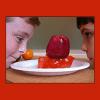
Space Jell-O
Source Institutions
Albert Einstein proved that space bends around anything that has mass. This activity uses Jell-O's ability to bend around objects as a model for space bending around planets and stars.
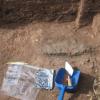
Finding Fossils
Source Institutions
This activity (located on page 4 of the PDF under GPS: Baby Dinosaurs Activity) is a full inquiry investigation to determine the age of fossils based on where they are discovered.
